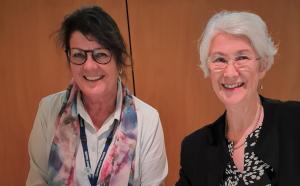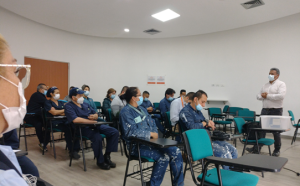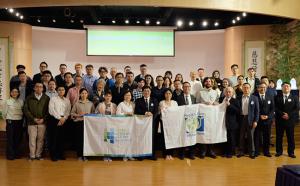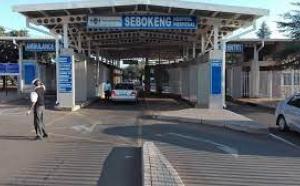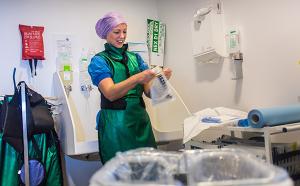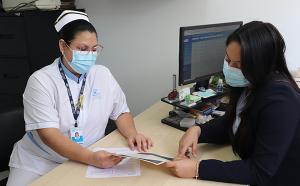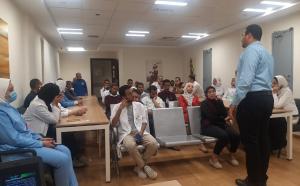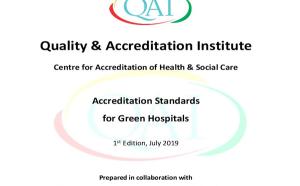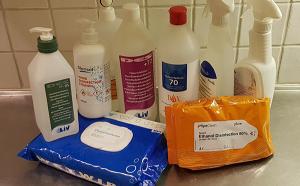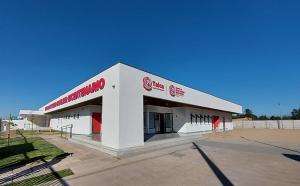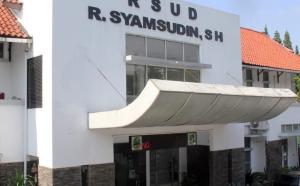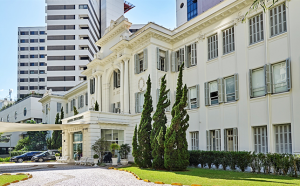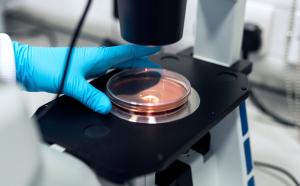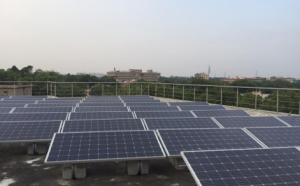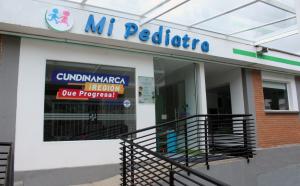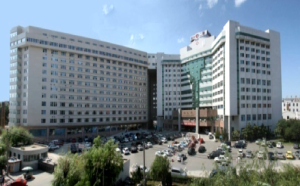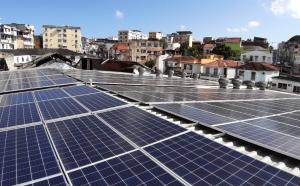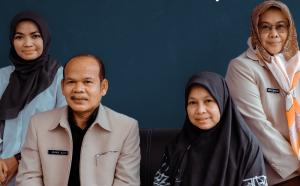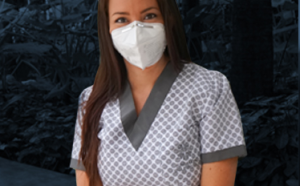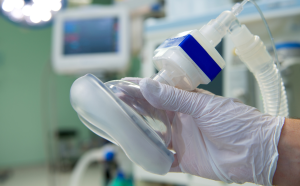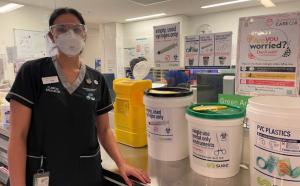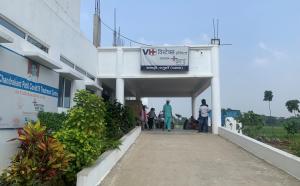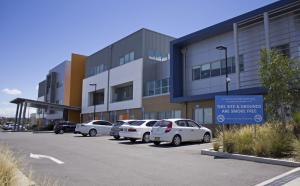The Al-Ramad Hospital in Port Said, Egypt, is a specialized ophthalmology health care center that serves over 100,000 patients and performs more than 6,000 surgeries each year. The hospital is one of the hospitals affiliated with the Egypt Healthcare Authority (EHA).
The hospital leadership decided to develop a comprehensive sustainability program for the institution and created an internal committee, with representatives of different departments, to create the Green Transforming program to foster green transformation across facilities. This comprehensive plan addresses nine of the ten Global Green and Healthy Hospitals (GGHH) agenda goals, with specific actions developed within this framework:
- Leadership: The institution developed initiatives for staff training and engagement, as well as education programs for visitors and patients, on the importance of resource preservation and the scope of the Green Transformation plan. In addition, it partnered with national authorities to maximize its reach.
- Energy: Implementation of a set of measures to reduce energy consumption, such as replacing fluorescent lamps with LED devices, repositioning lights to increase efficiency, and energy conservation measures such as temperature and humidity control.
- Water: Development of a sustainable water management program to improve water efficiency in agriculture and reduce water waste. This included installing different water-saving devices and collecting rain and wastewater for irrigation. The hospital also increased the number of green spaces, populating them with drought-resistant plant species.
- Waste: Implementation of a waste reduction and separation program and adoption of policies and practices to manage and separate pharmaceutical, plastic, sharp, chemical, and non-hazardous waste.
- Chemicals: The hospital is working on replacing hazardous materials with safer alternatives. It joined the WHO / Health Care Without Harm initiative for mercury-free medical devices, replacing mercury thermometers and blood pressure devices with digital devices. The Egypt Healthcare Authority announced that Al-Ramad Hospital is now a mercury-free hospital.
- Pharmaceuticals: An internal pharmaceutical program was developed to improve medication prescribing practices, adopt small initial quantities for new patients' prescriptions, and terminate free samples for patients to reduce waste.
- Transportation: The program includes promoting efficient and eco-friendly transportation alternatives by developing awareness and infrastructure projects to encourage the use of vehicles that do not rely on fossil fuels.
- Food: The hospital developed awareness programs to educate patients and staff on the importance of a healthy diet. Given that there are no cafeterias in the facility, the hospital is working on a leasing agreement to establish one, provided that the provider commits to delivering healthy, sustainable, preservative-free food and does not offer fast food or canned products. This cafeteria will be the first of its kind in Egypt.
- Purchasing: The Al-Ramad hospital requested the national purchasing authority to disclose the chemical components in the products purchased by the hospital. This is an important first step to developing a sustainable procurement program.
As a result of this ongoing initiative, the hospital managed to reduce monthly energy consumption by 38% in a two-month period and the water bill by 7% for the second half of 2023. In addition, the hospital achieved 100% digital file transformation in all departments, leading to a 30% reduction in paper use to date. In addition, 86% of patients and visitors reported their awareness of the sustainability measures introduced in the hospital.
Read the complete case study on Connect.





